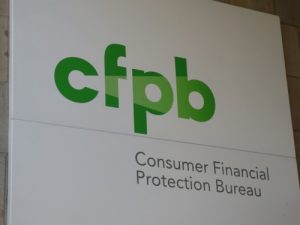(ThyBlackMan.com) The song, “(I Can’t Get No) Satisfaction” may have been recorded decades ago, first by Otis Redding and later by the Rolling Stones, but its message is still true today. Its lyrics, “I’ve tried, and tried” strike a resonant chord with anyone who ever felt they received less than they deserved.
When it comes to today’s range of financial services and products, many consumers don’t have satisfaction.
One of the reasons is that consumers are often denied the chance to join forces in court to hold bank and lenders accountable when they seem to have broken the law. Instead, financial contracts frequently contain forced arbitration clauses buried in the fine print. These anti-consumer clauses require that all disputes between consumers and the institution are dealt with in a secretive and often rigged arbitration system.
contain forced arbitration clauses buried in the fine print. These anti-consumer clauses require that all disputes between consumers and the institution are dealt with in a secretive and often rigged arbitration system.
Among the financial products with high use of arbitration clauses are payday loans. An estimated 99 percent of storefront payday loans in California and Texas include arbitration. Here’s how it works:
The financial institution hires the arbitration firm, pays its fee, and in turn, almost always rules in the company’s favor 93 percent of the time and leading to repeat business-to-business dealings. And by the way—more often than not, there is no right to appeal.
On July 10, a long-awaited rule to remedy this dilemma was announced by Richard Cordray, director of the Consumer Financial Protection Bureau (CFPB). A forceful and vocal coalition of civil rights, organized labor, consumer advocates and others had pushed for the rule to further address economic ills suffered disproportionately by consumers of color.
Earlier CFPB research found that even with limits on class actions, consumers receive—after attorneys’ fees—approximately $440 million more per year in these lawsuits than with arbitration. Over the past few years, 34 million more consumers received relief from class action lawsuits.
“Including these clauses in contracts allows companies to sidestep the judicial system, avoid big refunds, and continue to pursue profitable practices that may violate the law and harm large numbers of consumers,” said Cordray. “Our research showed that these little-known clauses are bad for consumers. They may not be aware that they have been deceived or discriminated against or even when their contractual rights have been violated.”
Civil rights organizations were swift to speak up in support.
“By leveling the playing field between corporations and individuals, this rule is an important step towards addressing the economic inequality that is so closely intertwined with racial injustice in the United States,” said Todd Cox, policy director for the NAACP Legal Defense and Educational Fund, Inc. Last August, the organization submitted comments supporting the rule – along with 110,000 others.
“These forced arbitration clauses block consumers who have been wronged from joining class action lawsuits or otherwise appearing before an impartial court that can consider their injuries,” said Vanita Gupta, president and CEO of The Leadership Conference on Civil and Human Rights.
“By forcing consumers into secret arbitration, corporations have long enjoyed an advantage in the process, and victims have often been precluded from sharing their stories with the press or law enforcement, Gupta continued. “The CFPB rule is simple. It says that consumers have the right to join together to enforce protections guaranteed by the Constitution, or federal, state, or local law.”
Unfortunately, not all reactions were supportive.
On July 20, Sen. Mike Crapo, Chair of the U.S. Senate Committee on Banking, Housing and Urban Affairs Committee and Rep. Jeb Hensarling, Chair of the House Committee on Financial Services announced a coordinated legislative attack to roll back CFPB’s arbitration rule. Proceeding under the Congressional Review Act, Congress can fast track a veto of new federal regulation with limited debate and a simple majority vote in each chamber.
As of press time, Sen. Crapo’s resolution was supported by over 20 Senate colleagues representing 21 states. For three of these states – Alabama, Georgia and Mississippi – both Senators support the measure. On the House side, Rep. Keith Rothfus sponsored its resolution with the support of 33 colleagues.
Only July 25, the House passed its resolution on a highly partisan vote of 231-190. Only one Member of Congress crossed the aisle to vote against his majority party – Rep. Walter Jones of North Carolina. As of press time, the Senate had not yet taken the measure to a vote.
Since the 115th Congress began in January, Congress has used the Congressional Review Act a total of 14 times. Each time it was used to overrule regulations by the Obama Administration. Prior to this year, only once in 2001, has Congress taken this approach.
For policy advocates, the attempt to undo the lengthy and thoughtful process CFPB used in developing its arbitration rule is a step backwards, instead of forward.
“These clauses block consumers’ access to the courts and force consumers into an arbitration process rigged in favor of the company,” noted Melissa Stegman, a Senior Policy Counsel with the Center for Responsible Lending. “This also makes it difficult for consumers to challenge widespread, systemic misconduct by companies since it is often too expensive to pursue small-dollar disputes one-by-one in arbitration. “The Wells Fargo scandal highlights the real harm of forced arbitration clauses, as customers who attempted to bring class action lawsuits against the bank over phony accounts were blocked from the court – keeping the growing problem out of the public eye.”
Whether it’s a payday loan, a credit card or maybe even a mobile phone, no consumer who has been financially harmed should be denied the right to seek some satisfaction and financial justice.
Written by Charlene Crowell
Official website; http://twitter.com/charlenem2

















Leave a Reply